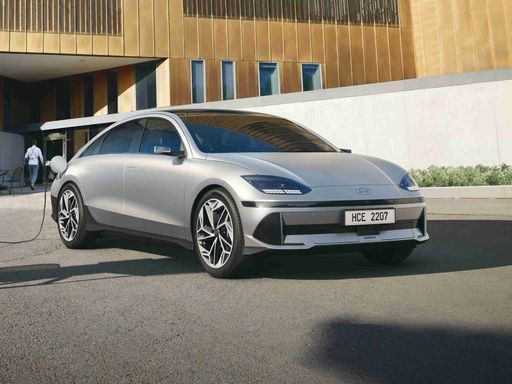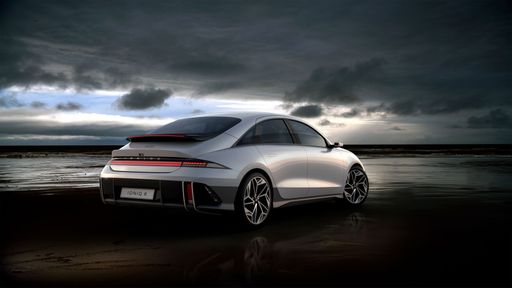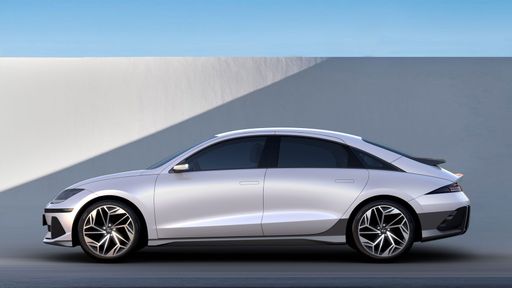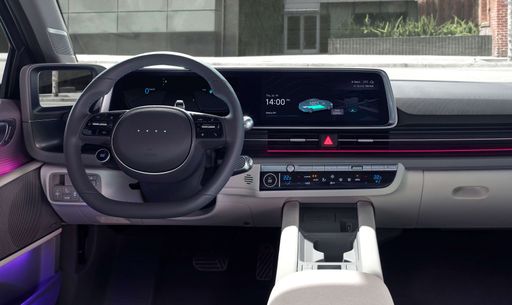Hyundai IONIQ 6 vs BYD Seal 6 – Which car suits you better?
Two cars, one duel: Hyundai IONIQ 6 meets BYD Seal 6.
Which one wins in performance, efficiency and value for money? Find out now!
Costs and Efficiency:
When it comes to price and running costs, the biggest differences usually appear. This is often where you see which car fits your budget better in the long run.
BYD Seal 6 has a slight advantage in terms of price – it starts at 36800 £, while the Hyundai IONIQ 6 costs 37600 £. That’s a price difference of around 780 £.
As for range, the Hyundai IONIQ 6 performs clearly better – achieving up to 614 km, about 514 km more than the BYD Seal 6.
Engine and Performance:
Power, torque and acceleration are the classic benchmarks for car enthusiasts – and here, some clear differences start to show.
When it comes to engine power, the Hyundai IONIQ 6 has a clearly edge – offering 650 HP compared to 212 HP. That’s roughly 438 HP more horsepower.
In acceleration from 0 to 100 km/h, the Hyundai IONIQ 6 is convincingly quicker – completing the sprint in 3.20 s, while the BYD Seal 6 takes 8.50 s. That’s about 5.30 s faster.
In terms of top speed, the Hyundai IONIQ 6 performs evident better – reaching 257 km/h, while the BYD Seal 6 tops out at 180 km/h. The difference is around 77 km/h.
Space and Everyday Use:
Whether family car or daily driver – which one offers more room, flexibility and comfort?
Both vehicles offer seating for 5 people.
In curb weight, BYD Seal 6 is minimal lighter – 1710 kg compared to 1850 kg. The difference is around 140 kg.
In terms of boot space, the BYD Seal 6 offers slightly more room – 500 L compared to 401 L. That’s a difference of about 99 L.
When it comes to payload, BYD Seal 6 minimal takes the win – 435 kg compared to 430 kg. That’s a difference of about 5 kg.
Who comes out on top?
Overall, the Hyundai IONIQ 6 shows itself to be wins the duel decisively and secures the title of DriveDuel Champion.
It convinces with the more balanced overall package and proves to be the more versatile choice for everyday use.

Hyundai IONIQ 6
Hyundai IONIQ 6
The Hyundai IONIQ 6 merges futuristic design with eco-friendly technology, offering a glimpse into the future of electric mobility. Its sleek silhouette and aerodynamic profile are sure to capture attention on the road, while the interior provides a seamless blend of comfort and cutting-edge digital features. With a focus on efficiency and sustainability, this model represents a significant step forward in the evolution of electric vehicles.
details @ hyundai.news
@ hyundai.news
 @ hyundai.news
@ hyundai.news
 @ hyundai.news
@ hyundai.news
 @ hyundai.news
@ hyundai.news
BYD Seal 6
The BYD Seal 6 is a captivating electric sedan that captures attention with its sleek design and modern aerodynamics. With a strong focus on sustainability, it offers an impressive electric driving experience, combining efficiency with cutting-edge technology. The Seal 6 stands out in the EV market for its luxurious interior and innovative features, making it a strong contender for drivers looking to embrace the future of transportation.
details

|
|
|
|
|
Costs and Consumption |
|
|---|---|
|
Price
37600 - 64300 £
|
Price
36800 - 42800 £
|
|
Consumption L/100km
-
|
Consumption L/100km
1.7 - 2.6 L
|
|
Consumption kWh/100km
13.9 - 15.1 kWh
|
Consumption kWh/100km
-
|
|
Electric Range
429 - 614 km
|
Electric Range
50 - 100 km
|
|
Battery Capacity
53 - 84 kWh
|
Battery Capacity
-
|
|
co2
0 g/km
|
co2
38 - 60 g/km
|
|
Fuel tank capacity
-
|
Fuel tank capacity
65 L
|
Dimensions and Body |
|
|---|---|
|
Body Type
Hatchback
|
Body Type
Estate
|
|
Seats
5
|
Seats
5
|
|
Doors
4
|
Doors
5
|
|
Curb weight
1850 - 2095 kg
|
Curb weight
1710 - 1805 kg
|
|
Trunk capacity
401 L
|
Trunk capacity
500 L
|
|
Length
4855 - 4935 mm
|
Length
4840 mm
|
|
Width
1880 - 1940 mm
|
Width
1875 mm
|
|
Height
1495 mm
|
Height
1505 mm
|
|
Max trunk capacity
-
|
Max trunk capacity
1535 L
|
|
Payload
425 - 430 kg
|
Payload
435 kg
|
Engine and Performance |
|
|---|---|
|
Engine Type
Electric
|
Engine Type
Plugin Hybrid
|
|
Transmission
Automatic
|
Transmission
Automatic
|
|
Transmission Detail
Reduction Gearbox
|
Transmission Detail
CVT
|
|
Drive Type
Rear-Wheel Drive, All-Wheel Drive
|
Drive Type
Front-Wheel Drive
|
|
Power HP
151 - 650 HP
|
Power HP
184 - 212 HP
|
|
Acceleration 0-100km/h
3.2 - 8.8 s
|
Acceleration 0-100km/h
8.5 - 8.9 s
|
|
Max Speed
185 - 257 km/h
|
Max Speed
180 km/h
|
|
Torque
350 - 770 Nm
|
Torque
-
|
|
Number of Cylinders
-
|
Number of Cylinders
4
|
|
Power kW
111 - 478 kW
|
Power kW
135 - 156 kW
|
|
Engine capacity
-
|
Engine capacity
1498 cm3
|
General |
|
|---|---|
|
Model Year
2022 - 2025
|
Model Year
2025
|
|
CO2 Efficiency Class
A
|
CO2 Efficiency Class
B
|
|
Brand
Hyundai
|
Brand
BYD
|
What drive types are available for the Hyundai IONIQ 6?
Available configurations include Rear-Wheel Drive or All-Wheel Drive.
The prices and data displayed are estimates based on German list prices and may vary by country. This information is not legally binding.
